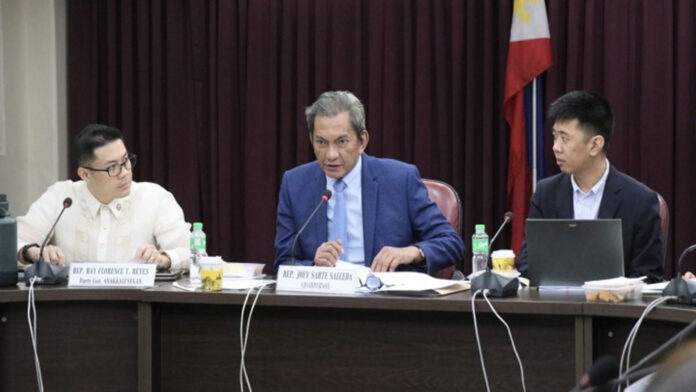The chair of the House Ways and Means Committee on Wednesday called on the House of Representatives to adopt the Senate version of the bill extending the deadline of the estate tax amnesty to ensure its enactment before President Ferdinand R. Marcos Jr.’s second State of the Nation Address (SONA).
In a statement, Albay Rep. Joey Salceda said there is no need to hold a bicameral conference committee meeting as his panel concurs with the provisions of the Senate version of the estate tax amnesty extension bill.
“This is a most urgent priority for the House leadership, so, you can count on immediate adoption by the House once we receive the formal transmittal from the Senate. We have also been in constant communication with my Senate counterpart, Senator (Sherwin) Gatchalian, to hammer out any style issues,” Salceda said.
He said that on top of the House version’s provisions, which would extend anew the Estate Tax Amnesty period from June 14, 2024 to June 2025, the Senate version also proposes the extension of the period of deaths covered to May 2022.
The Senate version also provides for electronic filing of estate tax amnesty applications, and limits the number of documents required for filing, he noted.
“We agree. So, we will move for adoption. If they can transmit by Monday, we will ratify by Monday. Anyway, I expect the House to wait for the Senate’s formal transmittal the whole day Monday,” Salceda said.
Relatively, the Senate has also shortened the period for issuing the implementing rules and regulations (IRR) from 60 days to 30 days.
Salceda earlier estimated that as much as 920,000 Filipino families have unsettled estates that could benefit from the amnesty.
He expects both Houses of Congress to get “this job done by Monday.”
“We will get what we want – enactment before SONA. And they will get what they want: their additional provisions. All’s well that ends well. A congressional majority working for the people,” he said.
Speaker Martin Romualdez, the principal author of the measure, said the proposed extension would give those covered by the law enough time to avail themselves of the amnesty and lower tax rates so they could use the properties and other assets they have inherited from their dead loved ones.
He said the proposal would also alleviate the burden of those who would want to avail of the amnesty but are still transitioning from financial difficulties to post-pandemic recovery.
“They have barely recovered from the Covid-19 (coronavirus disease 2019) pandemic, and the amnesty deadline, which had been extended once, is just a month away. It’s on June 14. Thus, the need for another extension,” he said.
Under the Tax Amnesty Act, delinquent heirs, executors, and administrators had up to June 15, 2021 to avail themselves of amnesty.
The law covered the estates of decedents who died on or before Dec. 31, 2017, with or without duly issued assessments, and whose estate taxes have remained unpaid or have accrued as of the same date.
The law offers those taking advantage of amnesty immunity from civil, criminal, and administrative cases and penalties under the 1997 Tax Code.
The pandemic prompted Congress to amend the law in June 2021 to provide for a two-year extension up to June 14, 2023. (PNA)


